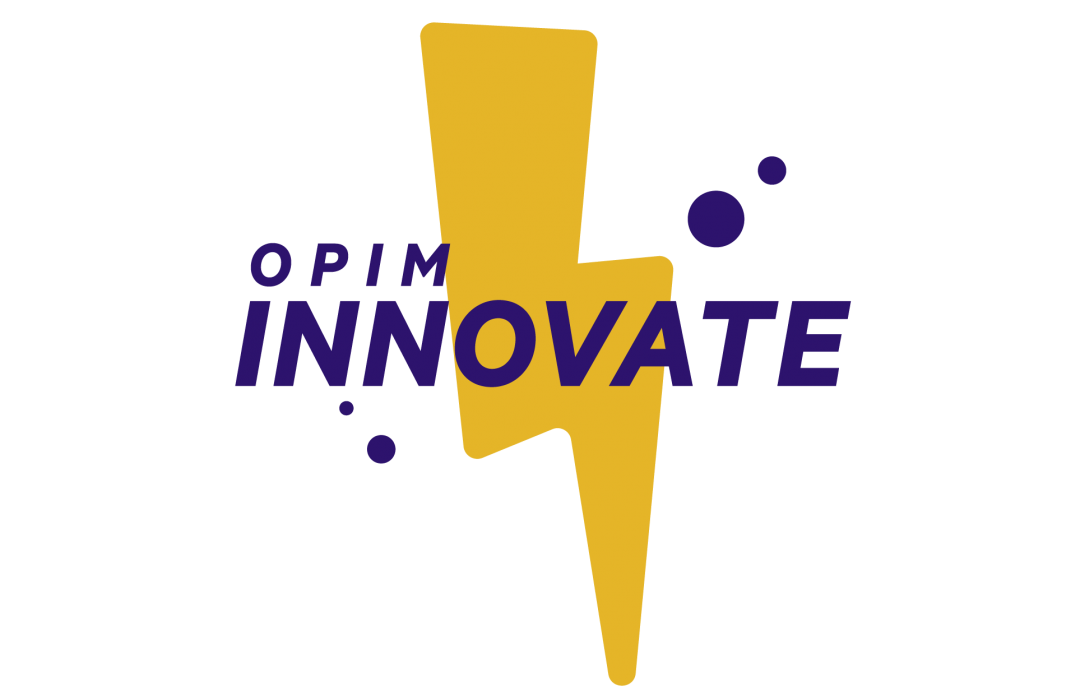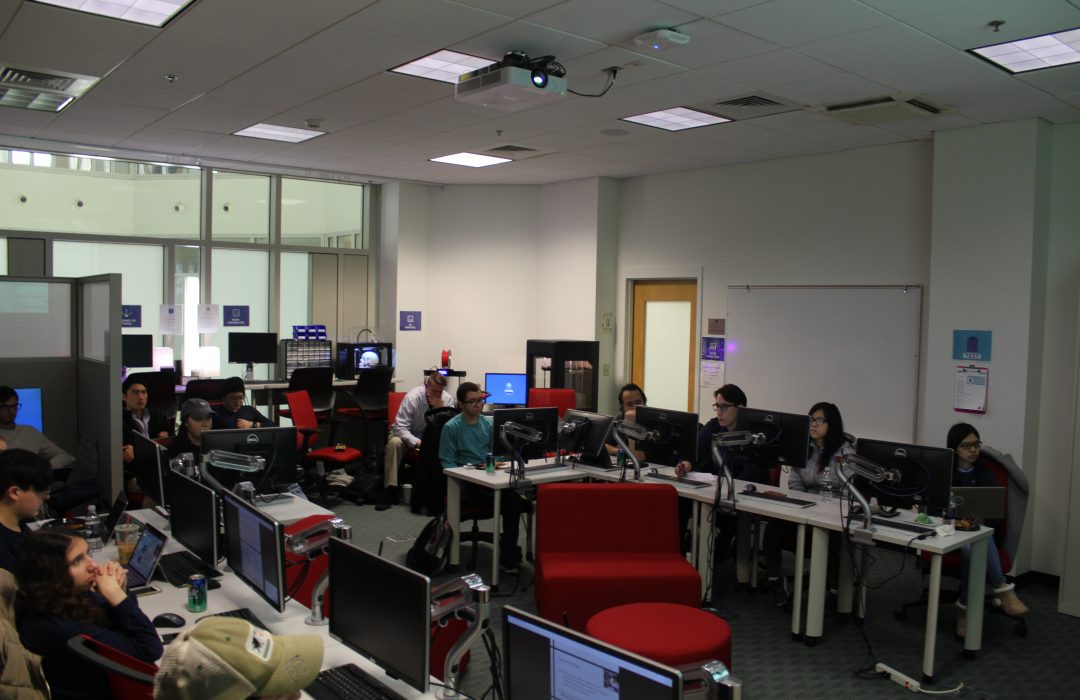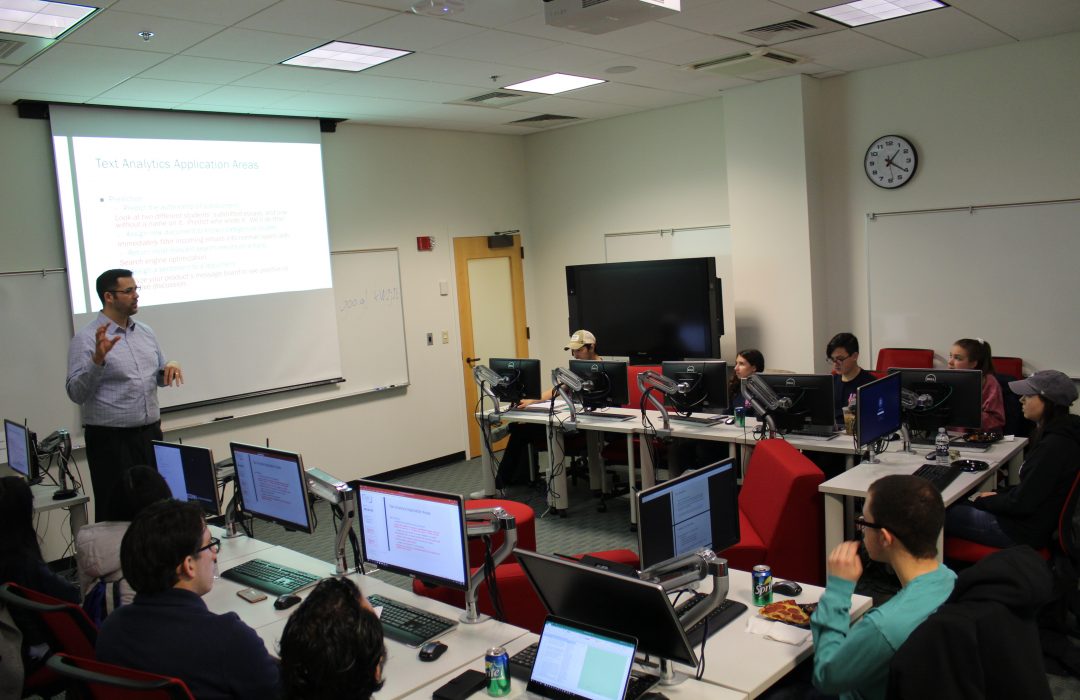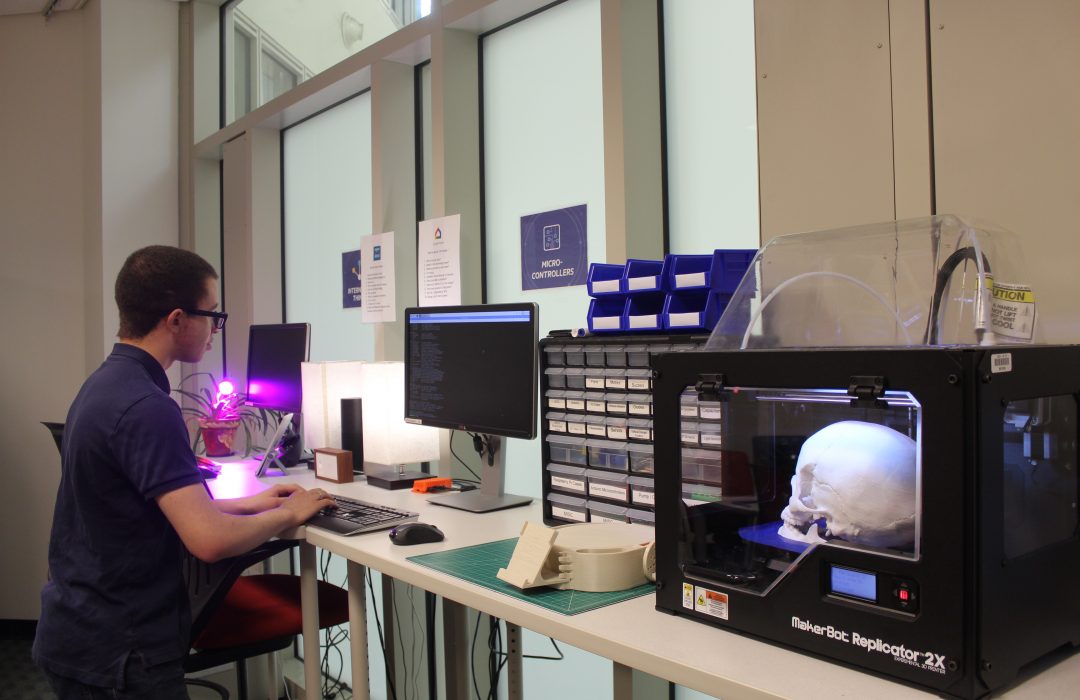![]() Artificial Intelligence is the ability for devices and machines to imitate cognitive functions in order to learn and process information. This means that artificial intelligence can interact with data in a wide variety of ways such as recognizing visual and audio input or making recommendations and predictions. With the progression of hardware and cloud computing in this century, artificial intelligence has been able to expand and become disruptive to all industries. Due to this, many companies and facilities today are looking to incorporate artificial intelligence to solve problems and to improve the overall quality of business.
Artificial Intelligence is the ability for devices and machines to imitate cognitive functions in order to learn and process information. This means that artificial intelligence can interact with data in a wide variety of ways such as recognizing visual and audio input or making recommendations and predictions. With the progression of hardware and cloud computing in this century, artificial intelligence has been able to expand and become disruptive to all industries. Due to this, many companies and facilities today are looking to incorporate artificial intelligence to solve problems and to improve the overall quality of business.
Tech Kits
Tech Kits are part of the walk-in service provided by OPIM Innovate. There are three levels of difficulty meant for different users and their experience with the different technologies. Many of the Tech Kits build off each other as you progress.
Beginner
Introducing Artificial Intelligence
Length: 30-60 Minutes
Description: Artificial intelligence is the theory and development of computer systems capable of performing tasks that normally require human intelligence. This tech kit guides users through IBM's Watson Assistant in broadly leveraging artificial intelligence - and narrowly, natural language processing - to create a simple chatbot.
Intermediate
Sentiment Analysis with NLTK inverter
Length: 30-60 Minutes
Description: Sentiment Analysis is a subcategory of Natural Language Processing, a broad spectrum of artificial intelligence applied to comprehending the meaning behind text. Sentiment analysis specifically uses an AI implementation to determine the emotion behind some amount of text. This tech kit uses a rule based algorithm to determine overall sentiment of a company.
Advanced
Exploring Machine Learning
Length: 30-60 Minutes
Description: Machine learning defines the study of algorithms and statistical models that computer systems use to perform tasks without explicit instructions. This tech kit explores Keras, an open source software library that’s used for machine learning development. In this tutorial, a model will be created in order to show the processes that go into making a machine learn.
Resources

Python 3.5
Type: Programming Language
Description: Python is an interpreted high-level programming language for general-purpose programming. Version 3.5 is a part of the many new versions that continuously are being put out.
![]()
TensorFlow
Type: Software Library
Description: TensorFlow is an open source software library for high performance numerical computations. It comes with strong support for machine learning and deep learning and the flexible numerical computation core is used across many other scientific domains.
![]()
Keras
Type: Network Library
Description: Keras is a high level neural network library written in Python. It runs on top of TensorFlow and is quite user friendly for those getting started. It was made for fast experimentation and modularity.
![]()
Google Colab
Type: Development Environment
Description: Google Colab is a code development environment that runs in the browser using Google Cloud and utilizes cloud computing.
![]()
Amazon Web Services (AWS)
Type: Cloud Computing Platform
Description: AWS is a list of cloud computing platforms that are available for developers to use. Services include, but aren’t limited to, analytics, storage, networking, deployment and internet of things.
![]()
IBM Cloud
Type: Cloud Computing Platform
Description: IBM Cloud is a suite of cloud computing services such as networking, data management and analytics for developers to use.




